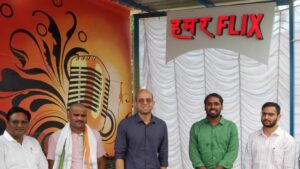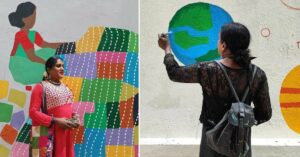How One Couple Is Reviving The Traditional Art Of Weaving In Kumaon
A Delhi-based couple shifted to Kumaon and revived the traditional art of weaving in the most amazing way. The initiative has resulted in a better standard of living, increased income and delayed marriage of girls. Know more!
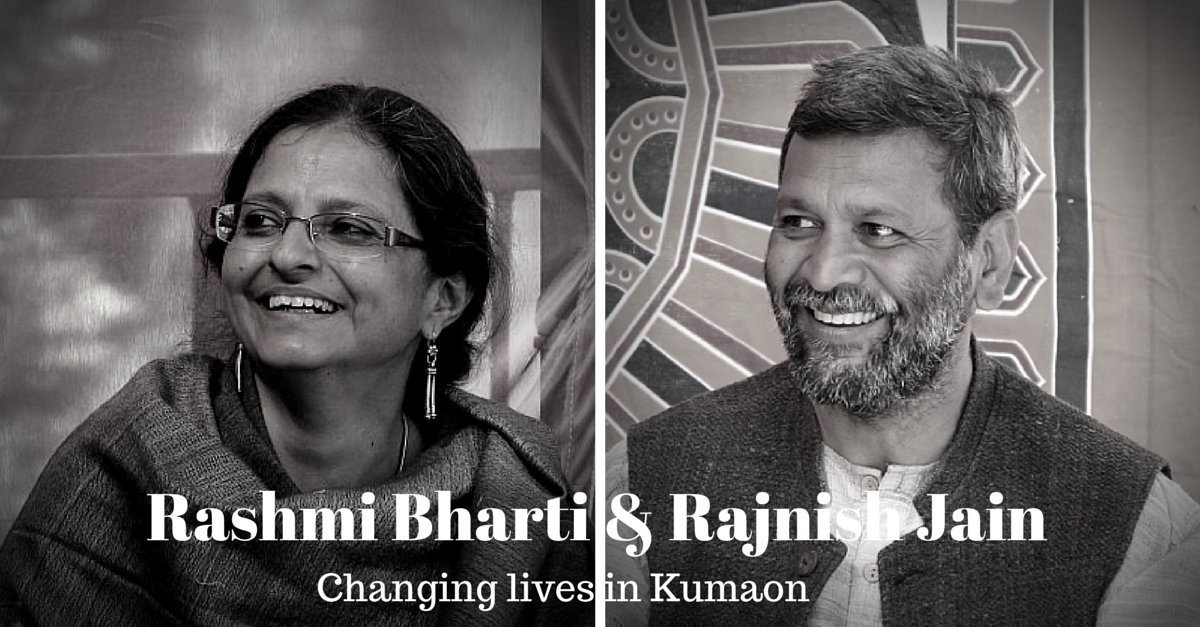
A Delhi-based couple shifted to Kumaon and revived the traditional art of weaving in the most amazing way. The initiative has resulted in a better standard of living, increased income and delayed marriage of girls. Know more!
Deepa Bhauryal, once a shy girl, joined Avani, a voluntary organization that promotes local weavers, when she was just 18. Today, she has transformed into an excellent weaver and works at a managerial level where she supervises other weavers at Avani.
Bhauryal is one of the many lives that have been touched by Avani through its various programmes focused on bringing sustainable development in the lives of the people of Kumaon by reviving the beautiful art of weaving.

Rashmi and Rajnish Jain left Delhi and shifted to Kumaon, Uttarakhand, to live an alternate lifestyle, far from the daily hustle of the city.
“The beauty of Kumaon lured us to come here. The desire to improve the livelihood options and the quality of life for the Himayalan people made us start our work in weaving and textile,” says Rashmi.
It all started when the Jain couple intervened to install solar energy in the houses of a village in the region. They realised that to sustain the model, the people needed a source of income, as they did not have the means to pay even the minimum amount of Rs.30 for the lamps.

“We thought that if we want to enable them to pay for the electricity, then there has to be a source of income. So we introduced spinning and later expanded to weaving,” says Rashmi.
What started as a means to provide a small source of income in two villages soon became a movement where the products by the Kumaon community became a brand. Today, Avani works with over 1,100 artisans in 101 villages of two districts.

The local products by the artisans of Kumaon are sold not only in domestic markets but also globally in countries including Japan and the US. The shawls, sarees, toys, home furnishings and many more products are beautifully made by the artisans, a majority of whom are women. By conducting various exhibitions and online sales, Rashmi and Rajnish are taking their art to diverse places.
“It is not just an enterprise; we have a very informal system of working. We work with people who want to work. We go with the community and get them involved in the process,” says Rashmi.
What starts as a training process becomes the way of life for the people who end up being closely associated with Avani and the work they do.
“People that we work with are associated with us for a very long time. Our every staff member has been with us for 14 years or more; they are like family,” she says.
But everything was not as easy as it seems now. The couple had to face their own challenges to establish themselves and build trust among the people.
“Why would people trust a third person who has just come to their village? It took us three years to just talk to the villagers in some cases. That was the most difficult challenge,” says Rashmi.
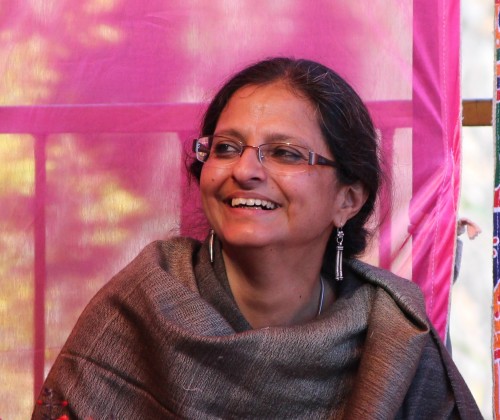
But with continuous efforts and persistence, they not only managed to bring people together but also helped them to earn a stable income.
“There is a lot of migration in these areas. In some villages, there are hardly any young men. Though we wanted to involve young men too in this, it is very hard. So our focus has been on women and the elderly who are staying here,” says Rashmi.
Rashmi once saw a very old man hand spinning. He would hardly earn Rs.200 a month even after such hard work. “I don’t like asking for money from my son. This money, however less it is, takes care of my daily tea and petty expenses,” he said.
That is when Rashmi realized that it is about self-respect and financial independence for the villagers.
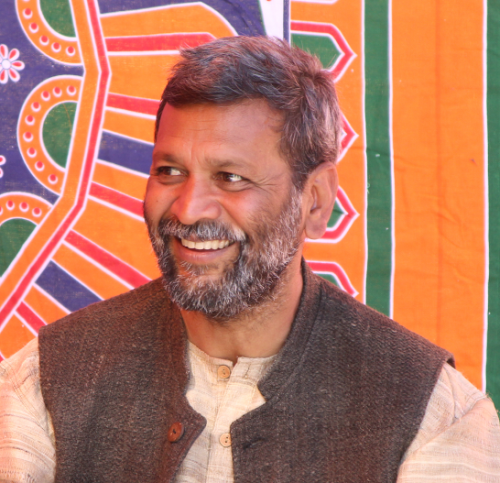
“It doesn’t matter how much they earn from it, but they want to be self-dependent,” she says. “We didn’t want to set up an industry and work from the top. We wanted to intervene at the bottom of the pyramid and bring the production process to the villages.”
That is when they started growing the crops in the region to make the raw material available locally.
The couple, who lives among the villagers and knows their needs, are happy to see the positive change and the impact Avani has created.
The marriage age of girls has been delayed by eight to ten years as they now have a job and a purpose.

“As there is no proper higher education, the girls would often drop out after secondary education and get married. Now, they come here regularly and have been deeply engaged in weaving, postponing their marriage until they are 26, 27, etc. We realized this gradually,” Rashmi says.
Apart from young girls, widows and abandoned women too have now got a regular source of income. The standard of their lives has improved; they are now able to pay their children’s school fees and have become more confident.
Living in the Himalayas has also been a unique experience for both Rashmi and Rajnish. “Acceptance of the reality of life is what we have learnt. How to live with so many challenges and still continue with the same enthusiasm is something this community has taught us,” says Rashmi.
In the future, Rashmi plans to expand the area of work- involve more people, manufacture more products and reach out to more people. They plan to engage over 4,000 farmers in the next couple of years through more products and opportunities.

“Always focus on the local skills, resources and management. They are unmatched and also more affordable. Traditional knowledge and skills are very important so it is always a good idea to listen to what the local community is saying,” says Rashmi.
You can also be a part of Avani’s wave of change by volunteering with them, extending monetary help or by just spreading the news about their work. You can buy their products from their website. To know more about their work, contact Rashmi at – [email protected]
Like this story? Or have something to share? Write to us: [email protected], or connect with us on Facebook and Twitter (@thebetterindia).
This story made me
-
97
-
121
-
89
-
167
Tell Us More
We bring stories straight from the heart of India, to inspire millions and create a wave of impact. Our positive movement is growing bigger everyday, and we would love for you to join it.
Please contribute whatever you can, every little penny helps our team in bringing you more stories that support dreams and spread hope.






